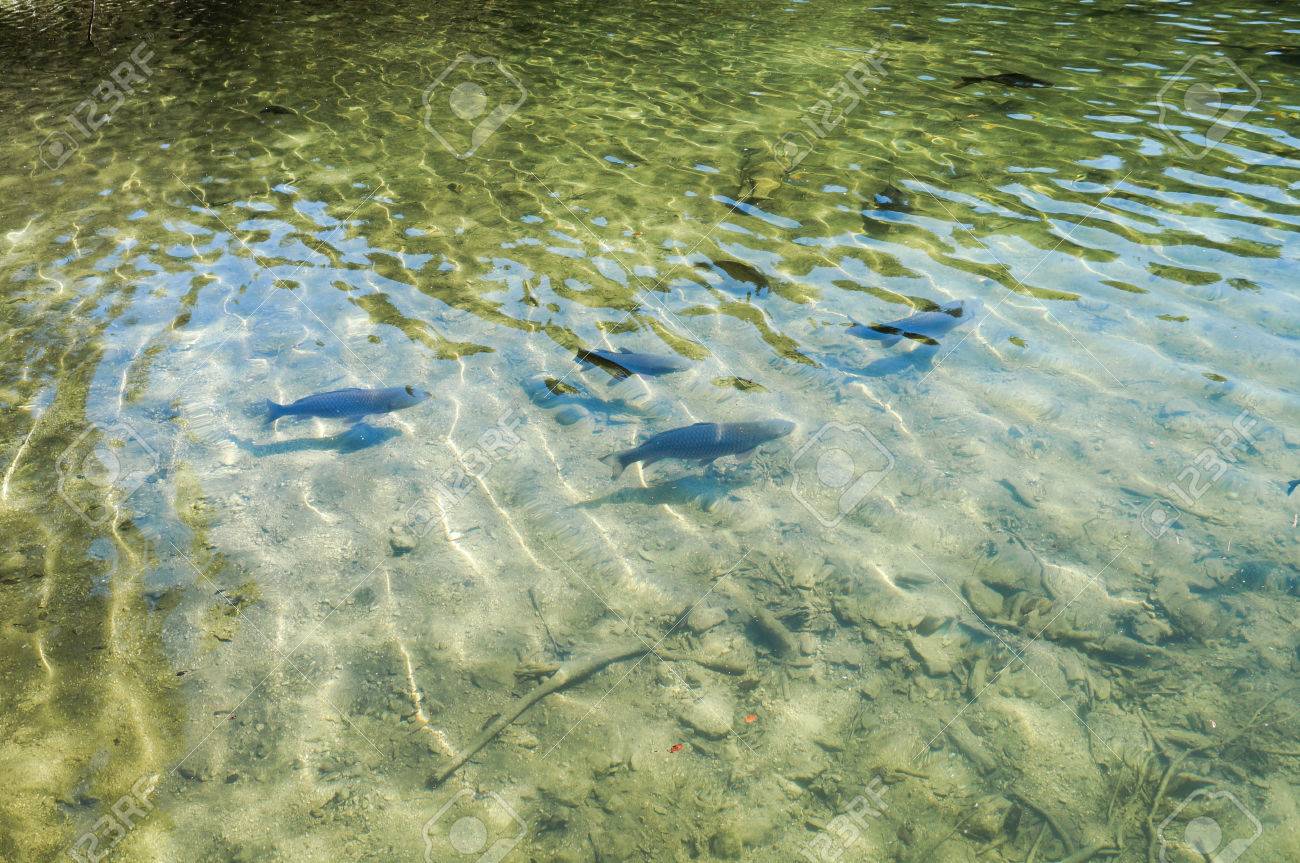Your pond water temperature is a crucial component in the health of your pond’s ecosystem and inhabitants. The wrong pond water temperature can result in reduced oxygen, poor water quality and, worst-case scenario, can result in your pond fish becoming critically ill.
This Pond Water Temperature Guide should help you to understand the importance of your pond water temperature for the health of your pond and to make sure your fish and plant life can thrive all year round.
Is The Temperature Of Your Pond Water Important For Your Fish?
Yes, your pond water temperature can affect your pond stock significantly. Pond water is vital for your fish to make sure they get the right amount of oxygen that they need to survive. Changes to the water temperature can alter the oxygen levels that are within it and, ultimately, affect the amount of oxygen your fish can receive.
Lower oxygen levels caused by the water temperature in your pond can slow your fish down, reducing the amount they eat and changing the way you need to look after them. This is why it is vital to know the temperature of your pond water.
Quick and drastic changes to your pond water temperature can also have severe effects for the health of your fish. Sudden drops or increases of temperature can result in shock and paralysis – having severe long term effects on your fish.
How Can You Measure The Temperature Of Your Pond Water?
So, how can you keep track of your pond water temperature? A pond thermometer is the easiest way to stay on top of your pond’s water temperature and ensure that you’re getting an accurate reading.
Pond thermometers like the Pontec PondoThermo are easy to install, floating thermometers that stay within the pond and will then provide an accurate, reliable reading for you to understand the health of your pond water.
What Temperature Should My Pond Water Be?
Whether you are keeping Koi fish or other fish stock, the general temperature of your pond water should range between 20 and 25 degrees celsius to keep them healthy and to keep the pond water healthy for your fish to live in.
Seasonal Effects on Pond Water Temperature
Winter
In the winter, especially in the UK, your pond water temperature is going to drop, possibly below freezing. The cold temperature will slow down your fish’s metabolism and alter the way you need to feed them. When the temperature reaches below 0 degrees celsius, your fish won’t need to eat.
If the water freezes, make sure you de-ice an escape hole for any toxic gases to keep the pond water healthy.
Spring
UK springtime can be unpredictable, with temperatures ranging across the spectrum. Turning off any added extras to your ponds, such as waterfalls and fountains, will regulate the temperature a bit more to avoid a sudden drop.
Summer
In summer, you have the total opposite worries that the pond water temperature may become too warm. Ideally, your pond water temperature should be between 20 and 25 degrees celsius – making sure not to exceed 29 degrees celsius.
Water that reaches a temperature above 29 degrees celsius becomes hazardous to your fish. The higher temperature means that it becomes less aerated, and the reduced oxygen levels could stop your fish from breathing.
Autumn
Autumn is when you’ll be preparing your pond for the cold winter months again. Temperatures begin to drop, and the cold water means rising oxygen levels in the chillier water. With the autumn pond water temperature dropping around 10 degrees celsius, your fish will probably still needs feeding a little bit but a reduced diet to the summer.
Pond Water Temperature Tips
- Keep a close eye on the temperature of your pond water to be aware of drastic changes and alterations that can affect the health of your fish.
- Be aware that seasonal changes will affect the temperature of your pond water.
- Invest in a pond thermometer to record the temperature of your pond regularly.
- Research your specific fish stock – certain types of fish require certain pond water temperatures, so it’s always best to thoroughly research before you get started.
Check out the rest of our pond care tips online today and make sure your pond is at its best!

Can you be more specific about the content of your article? After reading it, I still have some doubts. Hope you can help me.
I don’t think the title of your article matches the content lol. Just kidding, mainly because I had some doubts after reading the article.
Your article helped me a lot, is there any more related content? Thanks!
I don’t think the title of your article matches the content lol. Just kidding, mainly because I had some doubts after reading the article. https://www.binance.info/ES_la/register?ref=T7KCZASX
Thanks for sharing. I read many of your blog posts, cool, your blog is very good.
Can you be more specific about the content of your article? After reading it, I still have some doubts. Hope you can help me.